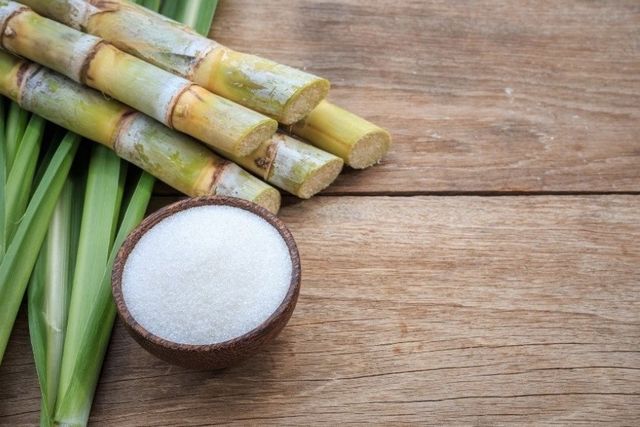Understanding Cane Sugar Processing: A Comprehensive Summary of the Stages
Understanding Cane Sugar Processing: A Comprehensive Summary of the Stages
Blog Article
A Comprehensive Introduction of the Health And Wellness and Economic Effects of Walking Stick Sugar Handling on Local Neighborhoods
Cane sugar handling plays a crucial function in shaping the economic landscape of regional areas, providing work chances and boosting ancillary sectors. The health implications connected with high sugar usage can not be neglected, as they add to climbing prices of obesity and diabetes.
Economic Benefits of Cane Sugar Processing
Cane sugar processing supplies significant economic advantages that extend past the prompt farming industry. The farming and handling of sugarcane develop countless work chances, from farming to manufacturing and circulation. This employment generation not just supports local economies yet likewise fosters neighborhood advancement by offering stable income sources for family members.
Moreover, the sugar industry stimulates ancillary companies, including transport, equipment supply, and product packaging services (Cane Sugar Processing). As these fields expand, they add to a much more durable financial framework, improving total community resilience. The export capacity of refined cane sugar additionally magnifies economic benefits, positioning areas as competitive players in international markets
Financial investment in modern-day processing facilities can bring about increased performance and performance, thereby lowering waste and maximizing source use. This change not only benefits the regional economic climate yet also supports sustainability efforts by minimizing ecological influences.
Furthermore, the income created from walking cane sugar handling can be reinvested in local infrastructure, education and learning, and medical care, advertising holistic area development. In general, the financial benefits of walking cane sugar processing are diverse, providing a foundation for enduring prosperity in agricultural areas.
Health Dangers Associated With Sugar Consumption
Extreme sugar consumption presents significant wellness dangers that call for significant focus. High consumption of sugarcoated, specifically from refined foods and beverages, has actually been linked to countless health and wellness complications. One of one of the most pressing worries is weight problems, as sugary diet regimens add to a boosted caloric intake without giving essential nutrients. This unwanted can cause metabolic disorders, consisting of kind 2 diabetic issues, which has become progressively widespread in both adults and youngsters - Cane Sugar Processing.
In addition, high sugar usage is related to heart disease. Raised blood sugar degrees can lead to insulin resistance, a precursor to numerous heart-related problems. Additionally, sugar can have destructive impacts on dental health and wellness, leading to dental caries and gum tissue condition, as germs in the mouth prosper on sugar, producing acids that wear down tooth enamel.
In addition, arising study recommends a possible link between high sugar usage and psychological health conditions, such as clinical depression and anxiety. As areas grapple with these health and wellness threats, it becomes important to promote understanding and urge healthier dietary options. Dealing with sugar usage is crucial not only for individual health and wellness but likewise for the total health of local neighborhoods, stressing the need for detailed public health strategies.
Ecological Effects of Sugar Manufacturing
Regularly forgotten in conversations regarding sugar's ramifications is the considerable ecological effect of sugar production. The cultivation of sugarcane frequently necessitates substantial land usage, leading to deforestation, loss of biodiversity, and disruption of neighborhood ecosystems. The conversion of forests and wetlands right into sugar haciendas can cause environment devastation, harmful numerous types and altering ecological equilibrium.
Furthermore, sugar production is resource-intensive, consuming substantial quantities of water for watering. This can lead to exhaustion of regional water resources, adversely affecting both agricultural methods and community accessibility to clean water. Additionally, using chemical plant foods and chemicals websites in sugarcane farming can contribute to soil destruction and water air pollution, as runoff from these chemicals enters nearby rivers and lakes, impacting water life and human wellness.
The ecological footprint includes the handling phase, where power usage and waste generation further intensify environmental issues. Air contamination from shedding sugarcane areas, together with greenhouse gas emissions, add to environment adjustment. Because of this, the ecological effects of sugar production warrant serious factor to consider, advising stakeholders to take on even more sustainable practices to mitigate these unfavorable results on regional communities and communities.
Work Development and Neighborhood Advancement
The ecological obstacles positioned by sugar production are commonly counterbalanced by its possibility for financial advantages, especially in work creation and community advancement. The walking stick sugar sector functions as a considerable source of employment in numerous backwoods, giving work throughout various ability degrees, from agricultural labor to handling and circulation functions. This employment not only sustains specific families yet likewise adds to the total economic vitality of neighborhood neighborhoods.
Additionally, the establishment of sugar processing facilities promotes secondary services, such as transport services, equipment supply, and upkeep carriers. As these organizations grow, they produce additional jobs and boost neighborhood economies. The revenue created from the sugar industry also results in boosted tax obligation profits, which can be reinvested into community services such as infrastructure, medical care, and education and learning advancement.
Additionally, the sugar sector commonly participates in area growth efforts, such as sustaining local schools and wellness programs, thus improving the lifestyle for locals. By promoting solid area ties and advertising economic growth, the walking cane sugar processing industry plays an essential duty in uplifting regional populations, making it an essential element of lasting advancement strategies in sugar-producing regions.
Harmonizing Health And Wellness and Economic Growth
In view it navigating the complexities of cane sugar handling, an essential difficulty depends on stabilizing wellness considerations with economic development. The sugar industry substantially adds to local economic climates by producing work, boosting relevant markets, and increasing tax earnings. However, the health and wellness effects associated with excessive sugar usage can result in chronic conditions such as weight problems, diabetes, and cardio problems, which can concern public wellness systems and reduce labor force efficiency.

Moreover, governing structures pop over to this web-site can play a critical role in guiding industry techniques in the direction of more health-conscious and lasting techniques. By fostering cooperation in between federal government bodies, wellness organizations, and the sugar sector, areas can navigate the duality of wellness and financial development, making sure that the advantages of walking stick sugar processing are equitably shared while prioritizing public health.
Final Thought
In conclusion, the handling of walking cane sugar offers both substantial economic advantages and remarkable wellness risks for neighborhood areas. While it cultivates work creation and promotes regional advancement, the associated health and wellness problems, particularly pertaining to excessive weight and diabetes, necessitate a mindful balancing act. By promoting liable usage and investing in area education and learning and sustainable practices, it is feasible to maximize economic advantages while reducing unfavorable wellness effects, thereby making certain a much healthier future for local populations.
In addition, sugar can have detrimental effects on oral health, resulting in tooth cavities and periodontal disease, as microorganisms in the mouth prosper on sugar, generating acids that wear down tooth enamel.
Attending to sugar intake is critical not only for private health and wellness yet additionally for the overall health of local neighborhoods, emphasizing the requirement for comprehensive public health and wellness methods.
Frequently ignored in discussions concerning sugar's ramifications is the substantial ecological influence of sugar production. The health and wellness ramifications connected with extreme sugar consumption can lead to persistent diseases such as obesity, diabetic issues, and cardio issues, which can concern public health systems and lessen workforce efficiency.

Report this page